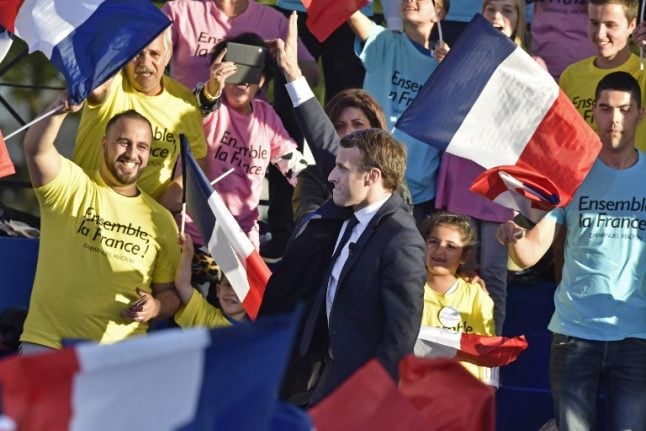The 39-year-old leader pulled off what few thought possible by creating a pro-Europe centrist movement from scratch in April 2016 and then sweeping presidential and parliamentary elections just over a year later.
But even senior figures of the Republic on the Move (LREM) admit that, having tasted glory over the summer with a membership of some 350,000, the party has stagnated since.
Worse, after widespread grumbling in private, a small group of 100 followers went public this week with an open resignation letter that claimed the party was consumed by political games and “courtesanship”.
One former En Marche founder who was quitting the movement described it as a “sect”.
The anonymous rebels said that LREM was guilty of “contempt and arrogance”, had frozen out its community-level members and was aping the methods of the “old world” of politics. “Democracy is not On the Move,” it said.
The letter, first published by the France Info radio station on Tuesday, was timed to coincide with a party congress at the weekend where Macron's handpicked favourite Christophe Castaner is set to be named new LREM leader.
Castaner, a government spokesman who has spoken of his “love” for the president, is standing unopposed in a vote set to be dominated by national
party bigwigs — not grassroots members of what Macron calls a “citizens' movement”.
 (En Marche's MPs. AFP)
(En Marche's MPs. AFP)
Growing pains?
The ructions in LREM are one of a number of challenges faced by the young head of state who needs the party as a support base as he battles opponents on many fronts, including angry trade unionists opposed to his agenda.
It will also be vital for Macron at the local and regional level in France, where upcoming elections for mayors and councils offer him the chance to push
his pro-business agenda to “transform” France.
LREM, launched simply as En Marche (On the Move) in April 2016, was a hugely effective electoral force with its thousands of volunteers who knocked on doors, flocked to rallies and distributed leaflets.
Many were drawn to Macron's promise to do politics differently, including his pledge to put “kindness” at the heart of his agenda, while local committees were invited to brainstorm and contribute to the party's manifesto.
But once the former investment banker entered office in May, the tight-knit team behind En Marche's success — political aides all in their 20s and 30s — headed to new jobs in ministries or the presidential staff.
Many volunteers returned to their day jobs, or simply took a break after months of exhausting work.
One leading LREM campaigner in Paris told AFP that the party was barely functioning.
“If you ask for help, they don't offer anything. The telephone switchboard doesn't even work properly at headquarters,” she said, asking not to be named because of fears the criticism could harm her standing.
An article in the magazine L'Opinion this week looking at the movement's growing pains was headlined: “Republic on the Move goes through a teenage crisis”.

'Complicated'
LREM parliamentarian Jean-Christophe Moreau, a former farmer who is one of dozens of MPs who benefited from Macron's drive to bring outsiders into politics, admits that “obviously since the elections, it's been complicated.”
“The priority now is to have a clear political line,” he said in an interview in his office at parliament where lawmakers were busy voting on a new tax-cutting budget aimed at stimulating business.
He and others hope that the smooth-talking Castaner (pictured above right), a former Socialist MP who sided early with Macron during his presidential bid, can help revive the lost momentum on the ground.
The open letter by the LREM rebels claimed that “local committees have emptied” since the elections — something seen as a worry by other members who have spoken to AFP and other French media this week.
Castaner's uncontested “election” this weekend will give the party head a new focus, but the opaque process that led to his nomination has left some
activists worried about a lack of internal democracy.
“If things are very centralised, then you can get the impression that we're just here to apply decisions made higher up and people will get disappointed,” warned Patrick Bernard, an LREM organiser in the rural Creuse region.
But he believes new initiatives like a skills training platform for volunteers and new community projects for members will help regenerate enthusiasm.
“We need to give ourselves a new identity,” he said.
by AFP's Adam Plowright



 Please whitelist us to continue reading.
Please whitelist us to continue reading.
Member comments